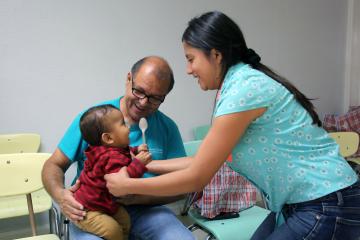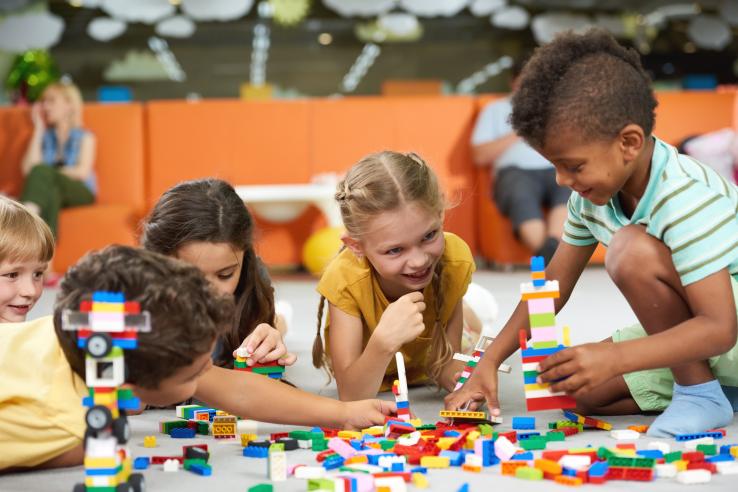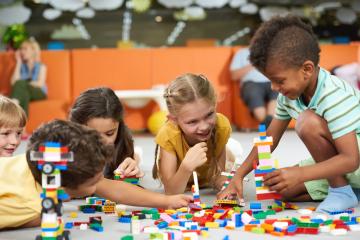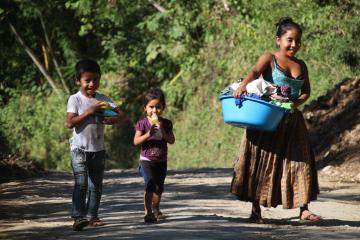
Improving the quality of preschool education in Brazil

Enriching experiences in the first years of life, which include responsive caregiving, safety and security, good health, adequate nutrition, and opportunities for early learning, are fundamental to full development during early childhood and throughout life. These experiences are closely related to a child's social, cognitive, emotional, motor, and language development. Additionally, a healthy, responsive, stimulating, and caring environment during the first years of life can lead to long-term benefits in schooling, labor market earnings, crime reduction, and more. The preschool years are particularly pivotal for outcomes later in life, as they not only provide children with a head start but also have lasting effects that can help alleviate the impact of social disadvantage.
Brazil’s Federal Constitution of 1988 affirms early childhood education (ECE) as a child’s right with an obligation to be provided by municipalities in collaboration with the state and federal governments. ECE in Brazil has seen significant advances over recent years, with playing and interactions as structuring elements of the Brazilian National Common Curricular Base for Early Childhood Education (BNCC). However, despite strong legal frameworks and the establishment of a national curriculum, ECE faces challenges related to equitable access and the quality of education considering socioeconomic, racial/ethnic, and geographic disparities.
In light of this, Bracell Foundation—a non-governmental organization that seeks to leverage the transformative power of education and early childhood to develop people's full potential and improve their lives—and J-PAL Latin America and the Caribbean launched a project, “Strengthening Learning and Development in Brazilian Preschools,” to identify, implement, and evaluate promising programs focused on improving the quality of education in preschools that have the potential to be scaled up.
A coordinated effort spanning four years
To achieve long-term sustainability and ensure programs are appropriately grounded in each context, we are bringing together a variety of stakeholders. Public leaders of state and municipal education departments of São Paulo, Mato Grosso do Sul and Bahia will be involved in all stages of the project, namely: design, implementation, evaluation of results, and the process of transferring the municipalities and states the technology to scale. Implementing partners, researchers from the J-PAL network, members of a committee of experts specially created for this project, and the school community of each municipality make up the diverse group of stakeholders involved in this project.
The project comprises four years. As part of our preliminary efforts, we are mobilizing and engaging state and municipal governments, as well as NGOs, experts, researchers, and other stakeholders working in the field. We are gathering descriptive data on early childhood education in Brazil, reviewing evaluations of preschool programs, and running a public call to select promising preschool programs, which will allow us to lay the foundations for fruitful partnerships.
Following this groundwork, we will provide funding for selected organizations to implement and evaluate their preschool education programs in collaboration with municipalities, states, and J-PAL affiliated researchers. The programs will be adapted to the contexts of each municipality. After determining which programs were effective at improving the quality of preschool education, we hope to support technology transfer to municipalities and states to scale them up. This also includes monitoring and evaluating them in new contexts (if needed) and providing technical support for their scale-up in partnership with municipalities and states.
Get involved
We have an open call for organizations that have developed and have experience implementing a program to improve preschool education quality and want to evaluate their programs. Through a rigorous review process, some will be selected to participate in an introductory training. We will pair the most promising programs with researchers from J-PAL’s academic network interested in carrying out a randomized evaluation. By the end of the year, we will have a separate call where programs and J-PAL affiliated researchers can jointly apply for funds for implementation and evaluation with partner organizations.
Do you think your organization could benefit from this project? Please review the project’s website or write to [email protected]



